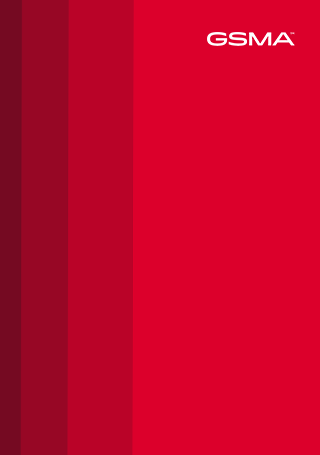European Conference of Postal and Telecommunications Administrations (CEPT) Supports Important Spectrum for Mobile But Should Demonstrate Greater Flexibility Ahead of WRC-15
London: John Giusti, Deputy Chief Regulatory Officer, GSMA, commented on the outcome of the final meeting of the European Conference of Postal and Telecommunications Administrations (CEPT) in Bergen, Norway, in preparation for this November’s World Radiocommunication Conference (WRC-15):
“The GSMA welcomes CEPT’s support for the identification of more spectrum critically important to the future growth of mobile broadband in Europe. Mobile data services are increasingly essential to citizens and businesses in the region and we encourage CEPT to ensure that countries have the flexibility they need to also use spectrum in alternative bands as consumer demand requires.
“We commend CEPT’s decision to support identification of L-band spectrum, between 1427 and 1518MHz, for mobile broadband. Europe has shown strong leadership for this band, which has made it highly likely that this band will have widespread support at WRC-15. A globally harmonised L-band will drive economies of scale that will benefit consumers around the world.
“The GSMA further welcomes the lead taken by Europe in promoting the use of a significant amount of C-band spectrum, from 3.4-3.8GHz, for mobile broadband. C-band spectrum will provide mobile networks with increased ability to meet intense urban demands for mobile data capacity and give consumers access to high-speed mobile broadband in city centres.
“However, the GSMA is disappointed by CEPT’s decision to oppose any use of the 2.7-2.9GHz band for mobile broadband. This spectrum is only lightly used in most countries in Europe and around the world and would be an attractive capacity band to help tackle the growing need for high bandwidth mobile data. Studies have shown there are realistic scenarios for effective and efficient sharing between airport radars and mobile broadband technologies in this band. We do not believe that countries that wish to use this spectrum for valuable mobile broadband services should be denied the opportunity to do so.
“We also encourage Europe to take a more flexible approach regarding use of UHF spectrum below 700MHz. Consumption of multimedia content is growing rapidly as more people access increasing amounts of content on mobile devices. The ways in which broadcast TV is delivered in different European countries are also changing and diversifying. While the GSMA believes that some free-to-air traditional broadcast delivery will remain essential, there should be flexibility in how UHF spectrum is used in order to maximise the benefit of this spectrum for the citizens of Europe. Without flexibility, Europe runs the risk to fall behind other regions in the mobile internet race.”
-ENDS-
About the GSMA
The GSMA represents the interests of mobile operators worldwide, uniting nearly 800 operators with more than 250 companies in the broader mobile ecosystem, including handset and device makers, software companies, equipment providers and internet companies, as well as organisations in adjacent industry sectors. The GSMA also produces industry-leading events such as Mobile World Congress, Mobile World Congress Shanghai and the Mobile 360 Series conferences.
For more information, please visit the GSMA corporate website at www.gsma.com. Follow the GSMA on Twitter: @GSMA.
Media Contacts:
For the GSMA
Charlie Meredith-Hardy
+44 7917 298 428
[email protected]
GSMA Press Office
[email protected]


